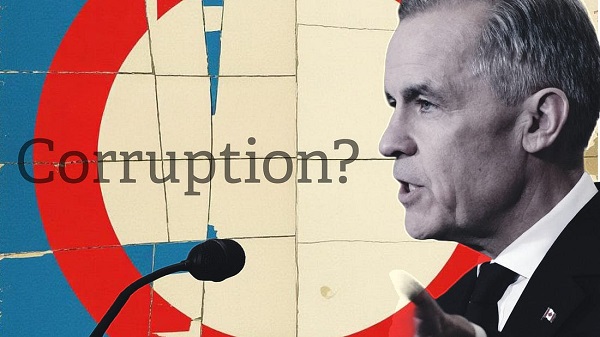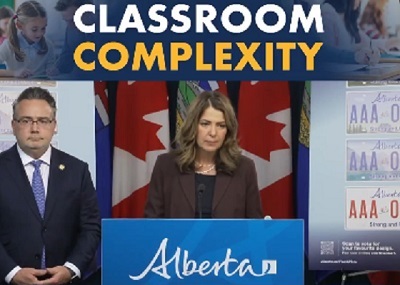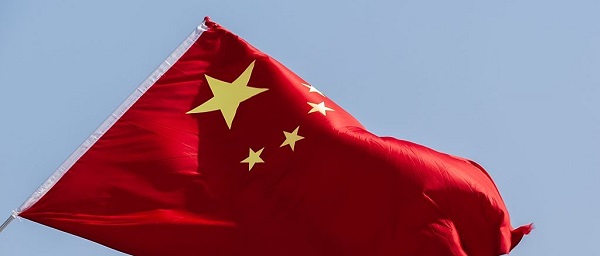Business
The Digital Services Tax Q&A: “It was going to be complicated and messy”

A tax expert on the departed Digital Services Tax, and the fiscal and policy holes it leaves behind
It’s fun, and fair, arguing whether Mark Carney “caved” in suspending the application of Canada’s Digital Services Tax to revive broader negotiations with the Trump administration. But I figure there are other dimensions to this issue besides tactics. So I got in touch with Allison Christians, a tax law professor at McGill University and the founding director of the Canadian Centre for Tax Policy.
In our talk, Christians discusses the policy landscape that led to the introduction of the DST; the pressure that contributed to its demise; and the ways other countries are addressing a central contradiction of the modern policy landscape: without some kind of digital tax, countries risk having to impose costs on their own digital industry that the overwhelmingly US-based multinationals can avoid.
I spoke to Christians on Friday. Her remarks are edited for length and clarity.
Paul Wells: I noticed in your social media that you express inordinate fondness for tax law.
Allison Christians: You will not find a more passionate adherent to the tax cult than me. Yes, I do. I love tax law. Of course I do. How could you not? How could you not love tax law?
PW: What’s to love about tax law?
Christians: Well, tax law is how we create our country. That’s how we build our society. That’s how we create the communities that we want to live in and the lifestyle that we want to share with our neighbours. That’s how: with tax law.
PW: I guess the goal [of tax policy] is to generate the largest amount of revenue with the smallest amount of grief? And to send social signals while you’re at it. Is that right?
Christians: I don’t think so. Tax is not about raising maximum revenue. Tax is about deciding what society you’re trying to build and what portions of that society need to be made public, and what can be left to private interests which then need to profit. So we have decided in Canada, as a country, that basic minimum healthcare cannot be a for-profit enterprise. It has to be a public enterprise in order to make sure that it works for everybody to a certain basic level. So tax is about making those decisions: are we going to privatize everything and everyone pays for their own health care, security, roads, insurance, fire department etc. And if they can’t pay, then too bad? Or are we going to have a certain minimum, and that minimum is going to be provided in a public way that harmonizes across the communities that we have. And that’s what tax is about. It’s not about extracting revenue at all. It’s about creating revenue. It’s about creating a market. It’s about investing in a community. So I just object to the whole idea that tax is about extracting something from me, because what tax is doing is creating a market for me to be able to thrive. Not just me, but all of my neighbours, as well.
PW: Let’s jump forward to the events of the past couple weeks. Were you surprised when the Prime Minister suspended the Digital Services Tax?
Christians: I think “surprise” is probably too strong of a word, because nothing any political leader does to cope with the volatility of the United States would surprise me. We are dealing with a major threat, a threat that is threatening to annex us, to take our resources, to take our sovereignty, to take our communities and rip them apart and turn them into a different way of being. And that’s a serious threat. So nothing would surprise me in response to that. Disappointed, of course. But not disappointed in our Canadian response. More disappointed in the juggernaut that Trump has been allowed to become by his base, and that they’re pulling the rug out from under everyone that’s cooperated with the US agenda for decades, including us.
PW: What’s your best understanding of what the Digital Services Tax was designed to accomplish? And is it unusual as taxes go?
Christians: So to understand this, you really have to be a policy wonk, which isn’t much fun. So I’m gonna give you an example that might make it clear from the perspective of Canada. Why we might have a Digital Service Tax or might want something like it.
I want to preface this by saying that the Digital Service Tax is by no means the only way to do the underlying things we want to accomplish. Certainly other countries have been collecting DSTs and have been collecting billions of dollars, and US companies have had reserves for paying that Digital Service Tax. So we just left money on the table. But let me try to explain why we want to do the thing without getting too “tax nerdy” on you.
So I’m sure you can come up with the one Canadian company that’s streaming content on television or on digital devices.
PW: Crave?
Christians: Yeah, that’s the one. Crave is owned by Bell Media and is a Canadian company. And Crave pays taxes in Canada. Crave has to compete against Netflix, which does not have to pay tax in Canada. Netflix just simply doesn’t have to pay the same way that Crave does unless we force them to pay. Crave has to compete with US and foreign content streamers. We may get to a point where we can get Netflix to collect some sales tax on the GST, for example. But if Netflix itself stays out of Canada, physically, but it’s still getting all those customers that otherwise Crave would have access to, then Crave is at a structural disadvantage.
Now tell me which Canadian provider competes with Google.
PW: I can’t think of one.
Christians: Exactly. There isn’t one. How are we supposed to get a homegrown competitor when our competition simply does not pay taxes, and any one we would grow here in Canada has to pay tax here? So we have to understand the Digital Service Tax as simply our response to the fact that we normally do not tax a company unless they are physically located in Canada. But now we’ve got to go into this digital space and say: you’re still here, even if we can’t see you and talk to you, you’re still here. You’re doing something in our market. And that’s what the Digital Service Tax was trying to deal with.
This Substack is reader-supported. To receive new posts and support my work, consider becoming a free or paid subscriber.
PW: Now, how are companies likely to respond to this Digital Services Tax? It seems to me the likeliest outcome would be that they would pass those costs on to their customers.
Christians: Yes, that is what companies have said they would do. Google talked about passing those costs on to the customers. And their customers obviously are advertisers. I want to point out that advertisers in Canada used to advertise in local newspapers and media. Now they advertise on Facebook, owned by an American-headquartered Company, Meta. Right now, they advertise on those foreign platforms, so we don’t have those advertising dollars here. Advertisers might have had to pay the Digital Service Tax if Google, or whoever, had passed it on to them. I think it’s fair to say, that Canadians advertising on those foreign platforms would have faced a gross-up to cover that tax.
PW: So, the net effect is that it just becomes more expensive for Canadian consumers. I’ve seen it argued that all this tax would have succeeded in doing is making Netflix more expensive.
Christians: Okay, that’s possible. I mean, that assumes the supply is totally elastic: you can increase the price of Netflix, and people will still pay it indefinitely. Right? So that’s the assumption in the short term. But the long-term assumption is that Crave becomes more competitive — because its competitors are paying the same tax that it is paying. The Crave subscription price may or may not respond, but if you put pressure on the foreign service providers in the same manner that’s on the Canadian providers, it might cost more, but we’re also getting the tax.
PW: I believe the Prime Minister, in an interview with the CBC said that he was thinking of getting rid of this thing, anyway. [The quote I’m reaching for here is: “Look, what we did this week is something that I think we were going to do anyways, in the end, for the deal.” At 1:07 in this video. — pw] Why do you think he would have been leaning in that direction? And do you think that absent a Truth Social post by President Trump, he actually would have gotten rid of the thing?
Christians: I can’t speculate too much about the politics of this, because I’m not talking to many of the people that make policy, but I know the complaints about the DST, and I don’t dispute them. It was going to be a complicated tax to collect and it was going to be messy in terms of compliance. There’s a lot of uncertainty around the tax and I know there’s always an enormous amount of pressure to reduce all taxes. There’s always going to be that segment of society that sees taxes being thrown down the drain and not as an investment in the society that we want to live in.
American companies are famous for investing their money on lobbying and not in taxes. They spend their money convincing us that it would be bad for us to tax them, and they can spend a much smaller percentage of their money on lobbying and get us to believe that narrative. And the narrative is that somehow, if we tax Google, Google will go away and we won’t be able to use it. That Google won’t innovate. It’s nonsense, but it’s a story that resonates nonetheless. Was Prime Minister Carney pressured to get rid of the DST? Undoubtedly. And maybe he personally thinks there’s a better way to tax these companies than with an excise tax. I don’t fault him for thinking that. I have even written that there are better ways for Canada to collect this tax than the Digital Services Tax.
PW: I’m going to want you to tell me about these other ways. But I assume that if a Canadian government attempts any of these other ways, then the companies we’re talking about know that all they have to do is hit the Trump button and the pressure will be right back on.
Christians: That’s correct. There are a couple of [alternatives to the DST]. We could, like some other countries have done, redefine the types of income that we subject to withholding taxes in Canada. It’s a complicated technical idea, but basically any payments that go from our advertisers to Google, we could impose a withholding tax simply by expanding a couple of definitions in the Income Tax Act that would then carry over into our treaty. Now, people will push back on that, and say that you’re changing a deal, and people will object to that. And we can have an argument about that, but that possibility exists. That withholding tax is the most straightforward way to do this and we should probably already be thinking about it.
Another one that’s kind of fun, which I really enjoyed learning about when I came to Canada, is Section 19 in the Income Tax Act. So, Canadian advertisers are paying Google now, instead of a Canadian newspaper. Well, Section 19 basically says that whenever someone makes a payment for advertising to a foreign, non-Canadian media, that payment’s not deductible.
Now that provision seems to violate Free Trade rules because it changes, depending on who you make the payment to. But it’s a provision in law. The US objected to it when we adopted it by imposing a reciprocal tax on US advertisers paying Canadian outlets, which doesn’t seem to bother anybody.
PW: But the application of that will be very asymmetrical, right?
Christians: Yes, for sure. And I’ll tell you what the Canadian media noticed when we started paying for digital newspapers online: that they’re not subject to Section 19 — only print and traditional media are subject to this denial of deduction — and Canadian media advocated for this denial of deduction for online publications as well.
All you have to do is look at the wording of Section 19 — and you don’t even have to change the words — and all of a sudden all those payments to Google are not deductible. But if the payments were to Crave, they would be deductible, and if they are to the Globe and Mail, or other Canadian companies, they would be deductible. That is a different kind of advantage for the Canadian competitor that’s a little less susceptible to Trump’s understanding, and a little less susceptible to the politics that surround the Digital Services Tax. But it’s technical. You have to explain it to people, and they don’t believe you. It’s hard to understand it.
PW: Theoretically a two-time central-bank governor could wrap his head around it.
Christians: Yes, I think he could fully understand it, for sure. You’re absolutely right. Will he want to do it, though? I just don’t know.
PW: You said that there are other jurisdictions that continue, today, to successfully tax the web giants. Who are you thinking of?
Christians: Well, Austria’s been doing the Digital Service Tax since the beginning. The UK has the Diverted Profits Tax that they’ve been using. Australia has one that’s been enforced. Austria stands out because I think it was 2017, in Trump’s 1st term, and it was part of a group that Trump threatened to retaliate against, but they just quietly kept going and they’re still collecting it. Part of the narrative is that we, Canada, came too late to the DST party. We just weren’t part of that initial negotiation. We came in too late, and then it was too obvious, and people were able to isolate us from the pack.
PW: My understanding is we’re looking at a hypothetical $7.2 billion in revenue over 5 years. And that represents a shortfall that’s going to have to be found either in other revenue sources or in spending cuts, or in greater debt. Aside from the DST, do you think Canada could use a general overhaul of its tax code?
Christians: Always. Yes, absolutely! Taxes are funny, right? Because they come into every single political battle, and what ends up happening is that politicians treat the Tax Act and the tax system as a present-giving machinery, and not as a clear policy deliverance system.
I am, every day, surprised at how complicated the Canadian tax system is. It’s way too complicated. You can’t even fill out your own tax return in this country. You’re going to make mistakes because it’s just too ridiculously written. It’s too confusing. It’s too messy. So it’s time to take another look. But you need a commission [like the 1962 Carter royal commission on taxation]. You need to be bipartisan. You need to spend money on that. You need to think that the things that you do have long-term effects, and this takes political courage. And basically it requires upsetting a bunch of people and resetting things, and we just might not be at the right time politically to be doing that because people feel vulnerable to volatility from abroad. So it may not be the time to push that.
Invite your friends and earn rewards
Business
Ethics on Ice: See You Next Year

Democracy Watch reveals the Prime Minister’s ethics firewall is riddled with loopholes—while the Privy Council delays access to records that could expose just how deep the conflicts run
Ottawa’s most creative writers don’t work at the CBC. They work at the Privy Council Office, where “transparency” now means grabbing a lawful deadline by the collar and hurling it four months down the road. According to Democracy Watch’s October 16 press release, the PCO was legally required to respond by September 25 to an Access to Information request filed August 28. What did the request ask for? National secrets? State security files? No—it asked for basic stats and documentation about Prime Minister Mark Carney’s so-called ethics “screens.”
Read the full press release here
Specifically:
- The date his personal screens came into force
- The identities of those enforcing them
- The number of decisions flagged for review
- And how many times Carney recused himself from Cabinet discussions
You’d think if those screens were doing anything meaningful, the answers would be simple—ready to go. But instead of complying with the deadline, the PCO told Democracy Watch they now need until January 25, 2026 to respond. Why? They claim they need to conduct a “consultation.” Over what? No private info was requested, no corporate secrets, no personal data—just raw numbers and public official names the PCO has on hand every single day if the screens are actually being enforced.
Here’s the con: Mark Carney straps on an “ethics screen,” gives the cameras his best global finance smirk, and strolls right back into the room. Why can he do that? Because in Ottawa’s broken ethics law, there’s a magical phrase that turns a real, direct financial conflict into a non-issue with a single bureaucratic flourish. That phrase is: “general in application.”
As Democracy Watch lays out in their October 16 press release, this loophole isn’t just a flaw in the system—it is the system. The federal Conflict of Interest Act says that if a government decision affects a broad class of people or entities, then it doesn’t count as a “private interest,” even if it directly benefits a company the Prime Minister owns shares in. That’s right. If the impact is spread out enough—if the policy touches lots of players—Carney can stay at the table, vote, advise, shape, and spin, even if his own investments stand to gain.
Democracy Watch calls this out as part of what they’ve labeled the “dirty dozen” loopholes—12 major escape hatches in Canada’s ethics laws that allow top officials to profit while pretending to recuse themselves. And this one is the crown jewel. It essentially allows the Prime Minister to participate in nearly every federal decision—from regulatory changes to tax policies to infrastructure contracts—even if his private holdings are directly tied to the outcome.
And make no mistake: Carney’s holdings are not theoretical. According to Democracy Watch, he’s invested in over 550 companies, including a huge financial stake in Brookfield Corporation and Brookfield Asset Management, where he previously held senior roles. His so-called “blind trust”? Not blind at all. He picked the trustee. He knows what’s in it. He can give instructions like “don’t sell,” and he still holds stock options he can’t divest for years. So yes, he knows exactly what he stands to gain.
But thanks to the “general in application” clause, Carney can sit in on policies that steer money toward sectors he’s tied to, influence regulatory landscapes that shape Brookfield’s future, and greenlight decisions that send his portfolio climbing—all while claiming he’s acting ethically because it affects “everyone.”
It’s the most cynical kind of legal gymnastics. And as Democracy Watch rightly points out, it makes the ethics “screen” nothing more than a smokescreen—a PR tool to assure Canadians their Prime Minister is above reproach, while the mechanics of power still tilt in his financial favor.
This isn’t conflict of interest prevention—it’s institutionalized denial. It’s Ottawa’s version of “these aren’t the droids you’re looking for.” Wave the hand, invoke the clause, and suddenly there is no conflict, even when the money trail says otherwise.
You can smell the boardroom cologne from here. The man spent years in the C-suite orbit, and now we’re told that a couple of screens and a “blind trust” will purify the air. Blind? Don’t insult the country. He knows what he put in it, picked the trustee, can give instructions, and—minor detail—still sits on stock options he can’t sell for years. That’s not blind; that’s a portfolio with push notifications.
Meanwhile, the screens perform their real function: hiding recusals. The law says public declarations are required when you step aside. The workaround says, “Nah, just put up a screen and pretend it’s automatic.” It’s ethics by decorative throw pillow, looks tasteful, does nothing.
And when Democracy Watch asks for the most basic receipts—start date, who enforces, how many flags, how many recusals—the PCO collapses onto the nearest fainting couch like a silent-film star. “Oh dear, a request… for numbers?” Numbers! The scandal. Spare us. This isn’t decrypting alien radio; it’s checking a ledger. If the tally weren’t humiliating, they’d punch it into a calculator, hit “equals,” and email it before their Tim Horton’s muffins cool at the morning briefing.
Let’s be adults: if this “screen” actually had teeth, they’d mount the skulls on the wall. We’d get glossy dashboards, color-coded bar charts, triumphal pressers—“Look at all the times the PM bravely recused himself!” Instead, we get a bureaucratic calendar punt past Christmas. Why? So the Prime Minister can keep cosplaying as “arm’s length” while still grazing every file that moves a share price.
And the choreography is always the same: stall, euphemize, declare victory. First the delay, then the jargon—“consultations,” “processing,” “complexity”—all to avoid admitting the obvious: either the screen caught almost nothing, or what it caught is too awkward to show you. If this thing had bite marks, we’d see them. Instead, we’re told to admire the muzzle while the dog keeps chewing the furniture.
And that’s the point, isn’t it? The so-called “ethics screen” isn’t a safeguard—it’s set dressing. It’s the cardboard scenery they roll out behind the Prime Minister every time someone asks about his investments. The whole thing’s a pantomime of virtue. The script says “public service,” but the plot twist is always the same: self-service.
And look at how allergic this government is to sunlight. Democracy Watch’s request gets punted to January, and now our own request—for the same basic documents—gets quietly shoved down the road to June. June! Past the next controversy, past the next budget, probably past the next scandal. It’s the oldest Ottawa trick: when the fire’s burning, move the deadline to when everyone’s forgotten the smoke.
Here’s the ugly truth: every day this file sits buried in the government’s filing cabinet of shame, the Prime Minister keeps right on shaping policies that could pump up the value of the very companies he’s tied to. He’s not waiting for the ethics commissioner; he’s waiting for the news cycle to move on. And while the bureaucrats “consult,” he’s still in the room, still making calls that ripple through the markets.
And every delay, every “extension,” every smug little shrug from the Privy Council Office is another giant, flashing neon sign that says: “We think you’re stupid. We think you’ll forget.” They’re counting on it. They’re betting you’re too busy, too distracted, too demoralized to notice while they drag this thing past winter, past spring, right into a bureaucratic black hole where inconvenient truths go to die.
And the state broadcaster? The CBC won’t touch this with a ten-foot carbon-neutral pole. Not while it risks putting their favorite global finance guru in a bad light. You won’t see a Fifth Estate exposé, no stern voiceovers about conflicts of interest, no dramatic music. But guess what? I’m following it. I’m not letting it go. Because this isn’t a paperwork mix-up. This is a full-scale cover operation dressed up as “consultation.” And if they’re hiding the numbers, it’s because the numbers are bad.
Because here’s what’s really going on: the people writing the rules are also holding the shares. They’re voting in Cabinet while their investments sit in the exact sectors they’re regulating. They’re shaping fiscal policy while their portfolios quietly hum in the background. That’s not democracy. That’s not public service. That’s a rigged casino where the dealer already knows which cards are coming.
And the longer these records stay buried, the more obvious it gets. If this ethics screen was real, they’d have shown it to you already. If the Prime Minister was actually recusing himself, the list would be public. But it’s not. Instead, they’ve given themselves months—into NEXT YEAR—to keep this locked away, far past the next scandal, long after the press loses interest.
Let me be absolutely clear: the Prime Minister is could be profiting from the very policies he’s enacting, and no one in Ottawa wants to talk about it. That should enrage you. Because if the guy running the country is making money off your mortgage rates, your tax dollars, your energy bills—while hiding behind an ethics “screen” so flimsy it might as well be cling wrap—that’s not just unethical, it’s corrupt. And every Canadian deserves to know.
For the full experience, upgrade your subscription.
Business
Canada has an energy edge, why won’t Ottawa use it?

Energy abundance, properly managed, isn’t just Canada’s strategic edge—it’s our ace in the hole while allies scramble to rearm their energy systems and competitors sprint ahead. We can keep sleepwalking through the annual ritual of self-imposed shackles, watching golden opportunities slip through our fingers, or we can finally show up as a serious player in the energy security game we’re already knee-deep in.
What the public doesn’t see behind all the climate summit fanfare is a carefully choreographed performance where capitals everywhere scramble to perfect their lines for the UN’s annual pageant. COP30 descends on Brazil in mid-November, and once again Ottawa looks primed to arrive clutching a stack of promises, desperately hoping that thunderous applause will somehow count as tangible progress in the real world.
Thanks to years of bureaucratic capture, our government keeps churning out the measures most fervently demanded by the climate lobby, and this ritual proceeds as if “net zero” were still a credible roadmap rather than a marketing slogan stretched so transparently thin it’s practically see-through. But out in the real world—away from the theatrical staging—the energy system keeps issuing updates of its own that no amount of wishful thinking can erase. The question this year cannot be what flashy new prohibition Ottawa can unveil on cue: are our leaders finally prepared to read the room? Away from the virtue-signalling theatre, countries are quietly adjusting to immovable realities: demand keeps climbing, reliability actually matters, and security trumps sermonizing—and we should be looking south to see what’s really working.
From 2005 to 2023, U.S. per-capita CO₂ emissions from energy plummeted by nearly a third. Not because of performative pledges or green grandstanding, but because coal quietly gave way to natural gas, with renewables filling in around the edges where they actually made sense. Pick almost any grid that made this pragmatic switch, and you’ll discover the same inconvenient pattern that climate absolutists prefer to ignore: fewer emissions and electricity you can actually count on when you flip the switch. Maryland serves as a clean example, where coal shrank from the backbone to a footnote as gas surged, helping keep the lights blazing when people needed them most.
Canada should pay very close attention to these uncomfortable truths. We benefit from hydro and nuclear in some regions, but what the green lobby doesn’t want to acknowledge is that our electricity demand is climbing relentlessly. Population growth alone would guarantee that outcome. Add the explosion in AI technology and it becomes utterly unavoidable, despite the silence from environmental groups. Even the cheerleaders of the new digital economy are brutally honest about this reality when pressed. The head of the world’s biggest AI chipmaker isn’t jesting when he bluntly tells the U.K. it will need gas turbines alongside nuclear and renewables to power its tech ambitions—inconvenient facts that shatter green fairy tales.
Another stubborn reality that doesn’t make it into climate summit speeches is that the International Energy Agency estimates oil and gas companies spend roughly half a trillion dollars every year just to keep output flat—a financial reality that exposes the “stranded assets” narrative as wishful thinking. Without this continual reinvestment, U.S. shale would crater within a single year. It’s rather difficult to describe that as a system drifting quietly into retirement, rather than an industrial backbone that still carries most of the load while activists pretend otherwise. If you’re Canada, that looks less like a looming problem than a golden opening that our competitors are already seizing.
Geopolitics is saying the same thing out loud, for those willing to listen beyond the climate activism echo chamber. J.P. Morgan bluntly calls this the “new energy security age,” and Europe is working frantically to end its dependence on Russian LNG—not for climate reasons, but for survival. Japan is expanding its LNG fleet, and Mexico is inking billion-dollar supply deals while climate campaigners aren’t looking. Strip away all the green branding and virtue-signalling, and you get a core calculation that energy security is nothing short of national security—and countries that get snookered by activist rhetoric into forgetting that harsh reality lose far more than bragging rights at international summits.

The Woodfibre LNG site is seen on Howe Sound in Squamish, B.C. THE CANADIAN PRESS/Darryl Dyck
Our allies have been leaning on us to quit sitting on the sidelines and deliver something concrete. And back home, even Ottawa’s mandarins are finally muttering what everyone else has known all along. For the next several years, at minimum, gas remains the most economical, rock-solid baseload option across vast stretches of the continent. Meeting that surging demand would deliver high-paying jobs, bulletproof alliances, and slash global emissions compared to the world burning more coal. Turning our backs on it means standing idle while rival producers rush to fill the void—all so we can pat ourselves on the back for warming the bench.
If this strikes you as abstract theorizing, cast your eyes toward California. A righteous crusade to shutter refineries didn’t magically eliminate the appetite for fuel—it simply exported the dirty work elsewhere, shipping out the jobs and the supply cushion that shields consumers from price shocks. The Golden State now scrambles like a panicked shopper whenever supply chains hiccup, because when push comes to shove, affordability draws the hard red line on what voters will tolerate. Meanwhile, the global landscape has shifted dramatically, with the United States now claiming the crown as top exporter of refined petroleum and LNG.
The lofty rhetoric of “climate solidarity” has quietly faded into something far more practical—nations ruthlessly pursuing their own interests. Even the most progressive speechwriters now pepper their drafts with buzzwords like ‘pragmatism’ and ‘realism.’ It represents nothing short of a grudging acknowledgment that wishful thinking won’t keep the lights on when the grid starts groaning.
British Columbia, meanwhile, sits perched atop the Montney—one of the continent’s most spectacular gas reservoirs—boasting the shortest shipping lanes to Asian markets. Indigenous nations are shrewdly securing equity stakes in LNG ventures while demanding genuine partnership—a blueprint that marries reconciliation with cold, hard prosperity. Those outbound cargoes are displacing coal-fired power overseas. If your genuine goal involves slashing real-world emissions, that achievement trumps a dozen flowery Ottawa press releases.
So no, the magic formula isn’t “all of the above,” but rather “the best of the above.” It demands deploying hydro, nuclear, and renewables where they deliver maximum punch, with natural gas serving as the indispensable bridge that keeps systems humming while breakthrough technologies mature. We must construct infrastructure that performs when sidewalks turn into skating rinks and when asphalt starts melting like butter.
We’ve also absorbed some hard-earned lessons about the political theatrics that spook serious capital. At COP28 in Dubai, then–environment minister Steven Guilbeault sported a baseball cap emblazoned with “emissions.” Emissions cap—catch the clever wordplay? The joke bombed spectacularly with investors. The policy proposal fared no better; its most vocal champion is reportedly eyeing the exit door, while nearly a hundred Canadian oil and gas CEOs have now fired off two blunt open letters to the new prime minister, spelling out precisely what the cap would accomplish: driving investors to pack their bags for friendlier jurisdictions. If your economic blueprint hinges on attracting capital, avoid crafting policies that essentially scream ‘beat it.’

World leaders at COP29 in Baku, Azerbaijan.
Energy abundance, properly managed, isn’t just Canada’s strategic edge—it’s our ace in the hole while allies scramble to rearm their energy systems and competitors sprint ahead. We can keep sleepwalking through the annual ritual of self-imposed shackles, watching golden opportunities slip through our fingers, or we can finally show up as a serious player in the energy security game we’re already knee-deep in.
What would that look like at COP30? It would sound nothing like the strangely self-defeating Canadian speeches of years past, which have been heavy on confessional hand-wringing, light on genuine intent, drowning in performative self-flagellation, and starved of actual competence. If Ottawa wants to prove it has finally woken up from its ideological slumber, it should ditch the tired theatre and roll out policies that actually unleash investment instead of strangling it: streamlined approvals with firm timelines that mean something; predictable fiscal treatment that doesn’t shift with every political breeze; a clear path for Indigenous equity in major projects; and an explicit commitment to “best of the above” power and fuels. Pair that with a forthright message to allies that cuts through the usual diplomatic fog: Canada intends to supply reliable, cleaner energy to the democracies that desperately need it.
It’s not capitulating to industry to stop pretending we can wish away reality. It’s the path that lets us grow the economy, slash global emissions faster than sanctimonious lectures ever will, and strengthen the alliances that keep free countries from getting steamrolled. If we want Canada to matter in this new energy security age instead of being relegated to the sidelines, we should start acting like we mean business. COP30 is the stage. Time to scrap the old script and write one that actually works.
-

 Alberta2 days ago
Alberta2 days agoPremier Smith addresses the most important issue facing Alberta teachers: Classroom Complexity
-

 illegal immigration2 days ago
illegal immigration2 days agoLos Angeles declares a state of emergency over ICE deportations
-

 Alberta2 days ago
Alberta2 days agoAlberta taxpayers should know how much their municipal governments spend
-

 International2 days ago
International2 days agoItaly set to outlaw Islamic face coverings nationwide
-

 Business2 days ago
Business2 days ago‘Taxation Without Representation’: Trump Admin Battles UN Over Global Carbon Tax
-

 Indigenous2 days ago
Indigenous2 days agoConstitutional lawyer calls for ‘false’ claims to end in Canadian residential schools burials
-

 Addictions2 days ago
Addictions2 days agoBC premier admits decriminalizing drugs was ‘not the right policy’
-

 Business2 days ago
Business2 days agoMajor Projects Office Another Case Of Liberal Political Theatre










